The Concept of Blessings in World Religions and Cultures: A Comparative Analysis
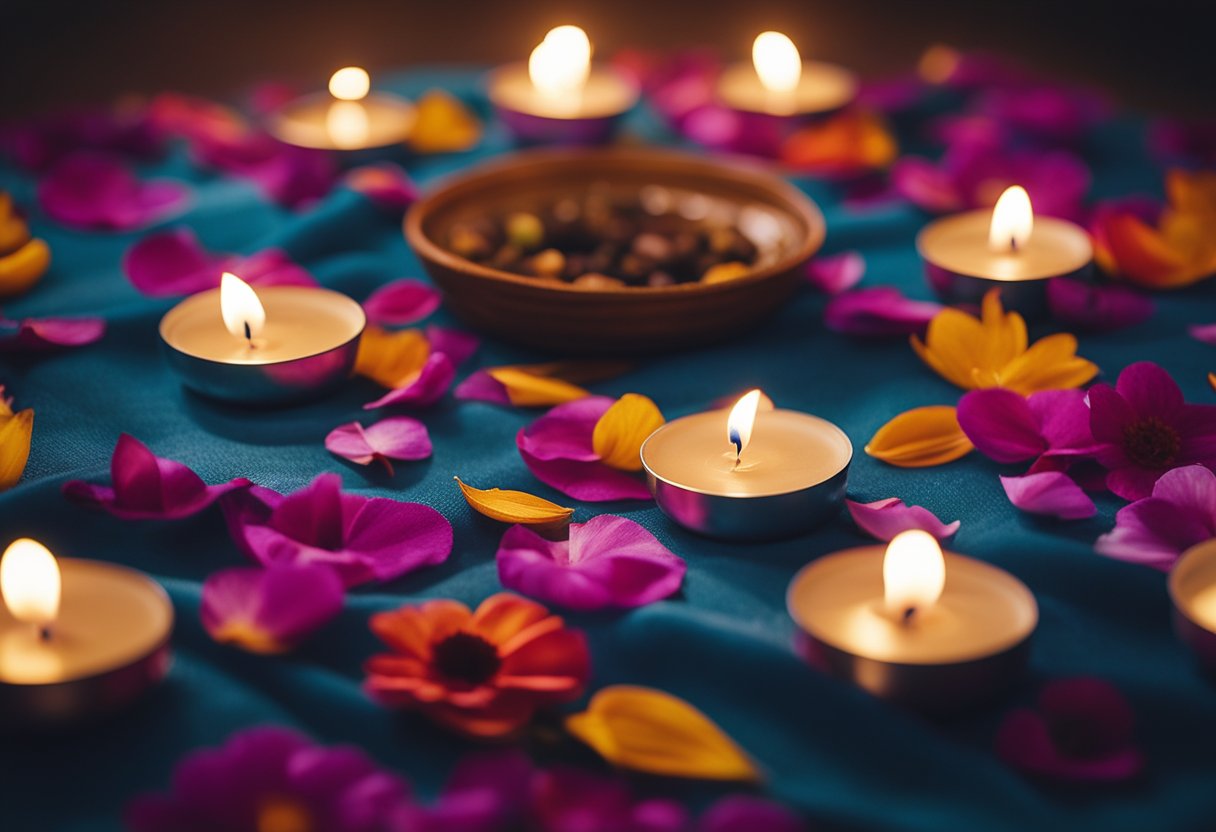
Updated On: April 22, 2024 by Eman Sameh
The concept of blessings traverses the diverse landscapes of world religions and cultures, weaving through the social fabric of numerous communities. In every corner of the world, blessings carry significant weight, whether they come in the form of spiritual grace, religious rituals, or cultural expressions. They often act as a conduit for the power of gratitude, embodying the hope for positive energy, prosperity, or divine favour. From the solemn prayers of the devout to the joyous chants at cultural festivities, blessings are a universal language of hope, aspiration, and reverence.

Within the context of faith, blessings hold a mirror to the intricate beliefs and practices that define the spiritual experience of communities. They are not only intertwined with formal religious observances but are also a part of everyday life, spoken at the dawn of a new day, before meals, or at the outset of a journey. Blessings can also cross the material realm, associated with good fortune, health, and happiness. Across cultures, the role of blessings is as varied as it is profound, playing a vital part in personal well-being, interpersonal relationships, and the sustenance of traditions and values through time.
History of the Concept of Blessings
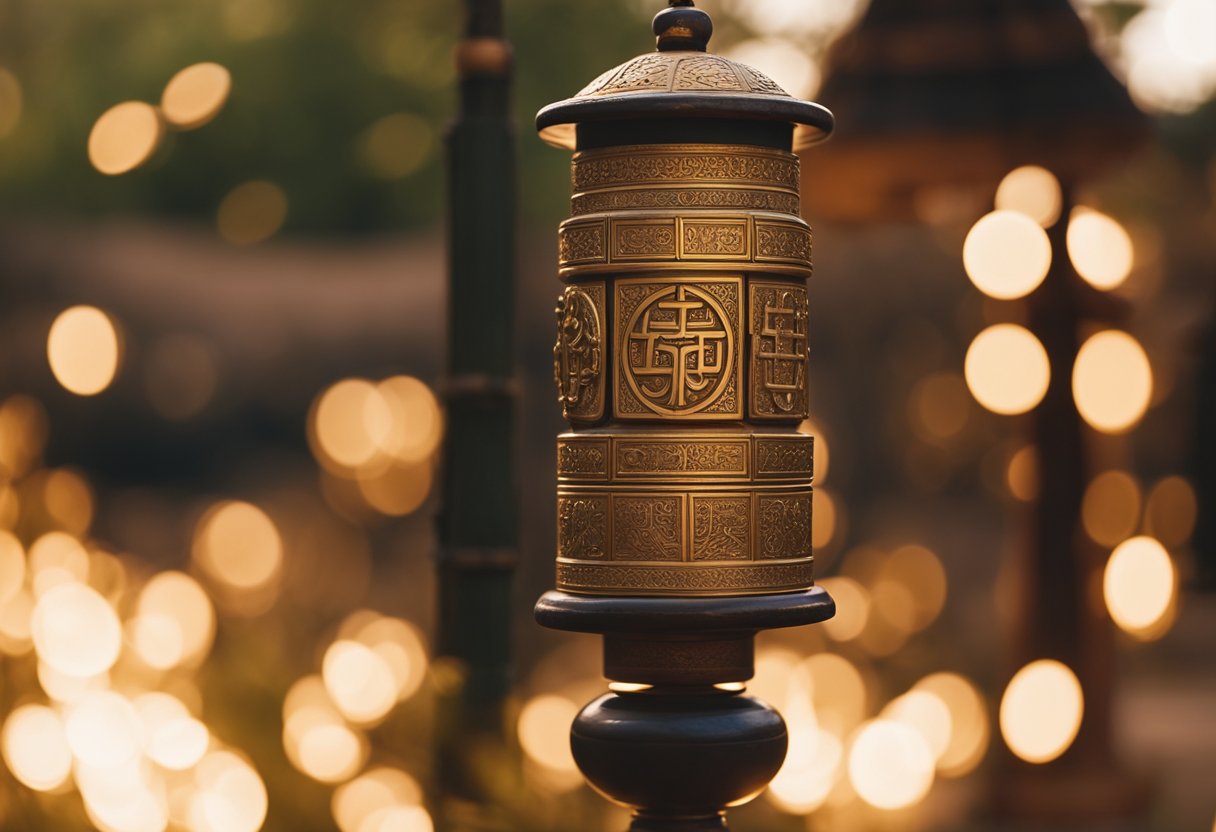
Examining the role of blessings throughout history reveals a profound connection between spiritual practices and societal norms. Blessings have been intrinsic to human expression, often serving as a bridge between the divine and everyday life.
Ancient Civilisations and Rituals
Ancient civilisations deeply integrated blessings into their societal fabric. Take, for instance, ancient Egypt, where rituals and the worship of deities such as Osiris were central to their understanding of creation and the afterlife. Priests conducted intricate ceremonies to invoke divine favour, and myths often explained natural phenomena as acts of the gods, with blessings or curses. Blessings were thought to bring about fertility, harvests, and protection against malevolent forces. Such rituals underscored an early recognition of a power beyond the mundane, a spirituality interwoven with the practical concerns of daily life.
Evolution of Blessings in Major World Religions
As religions evolved, so did the nature of blessings. In Hinduism, blessings are sought from a pantheon of gods through various rituals and pujas, which form a critical element of spiritual life. Judaism sees blessings as a way to sanctify everyday actions and maintain a constant connection with God. For Christians, blessings have evolved from early church practices founded on the teachings of Jesus Christ, focusing on grace and divine will. Islam encompasses the act of seeking barakah, or divine blessings, in all aspects of life through the words of Allah as conveyed in the Qur’an.
These traditions each offer a unique lens through which to understand the application and significance of blessings, painting a complex tapestry of human faith and expression.
Blessings in Various Cultures and Societies
Blessings are an integral part of spiritual expression worldwide, often shaping the core of cultural interactions and personal well-being.
Cultural Variations Across Continents
In Europe, blessings are historically intertwined with Christian traditions, with traces back to ancient Greece. Here, blessings were invoked by the gods in mythology and carried into daily life through various rituals. Moving to India, blessings carry profound significance in Hindu culture, as spiritual well-being is deeply rooted in the daily lives of the people. Religious ceremonies often begin with blessings, invoking prosperity and protection from the deities.
Across the ocean, the U.S. encompasses a wide array of cultural practices due to its diverse population, with blessings taking on various forms, from Christian prayers at mealtimes to indigenous ceremonies that honour ancestral spirits. Jumping over to Japan, Shinto and Buddhist customs are performed with great reverence, and blessings are bestowed during festivals and personal milestones to bring fortune and ward off evil spirits.
Blessings in Tribal and Indigenous Practices
When considering Indigenous and tribal practices, we find a rich tapestry of blessings rooted in a deep connection with the land and the ancestors. African religions, notably among the Yoruba culture, place a strong emphasis on blessings in their religiosity, which are believed to come from the Orishas, spiritual forces of the universe that govern earthly affairs.
Likewise, we find indigenous cultures across continents where blessings are an intrinsic part of their identity. These practices may not be widely known, but they reflect a universal human quest for connecting with the divine and seeking benevolence in their daily existence.
Psychological and Sociological Aspects
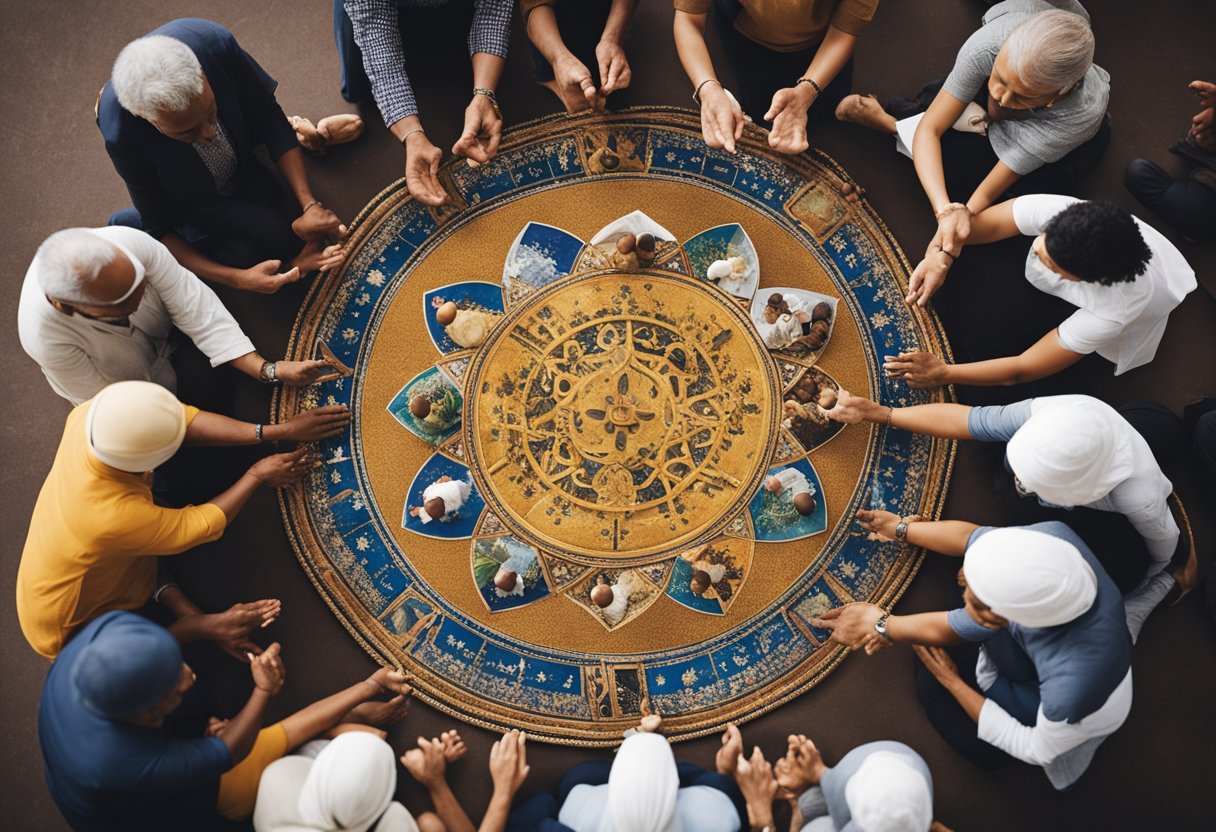
Exploring the psychological and sociological aspects of blessings reveals their significant impact on individual well-being and the social functions they play within communities. We’ll examine how blessings intersect with mental health and their role in shaping social cohesion and group dynamics.
Blessings and Mental Health
Studies have indicated that engaging in spiritual practices can be beneficial for one’s mental health, providing a sense of inner peace and joy. Invoking blessings can contribute to a person’s overall well-being, fostering feelings of love and comfort. For instance, a study highlighted by the National Center for Biotechnology Information suggests that religious and personal beliefs can be considerably correlated with mental health outcomes.
Social Functions of Religion and Blessings
As noted by sociologists like Max Weber and Émile Durkheim, religion plays a crucial role in shaping a community’s social structures and norms. Religious blessings, for example, can reinforce communal ties, endorse moral codes, and contribute to the group’s meaning and purpose. On the flip side, religious practices and blessings can sometimes be weaponised to justify violence or prejudice, per Karl Marx’s reflection on religion’s role in societal conflict.
The exchange of blessings within various groups extends beyond individual benefits to foster community bonds and shape valued social functions. Weber and Durkheim acknowledged the profound influence religion and religious practices like blessings have in creating social cohesion and providing a framework for the moral fabric of societies.
The Role of Blessings in Personal Life
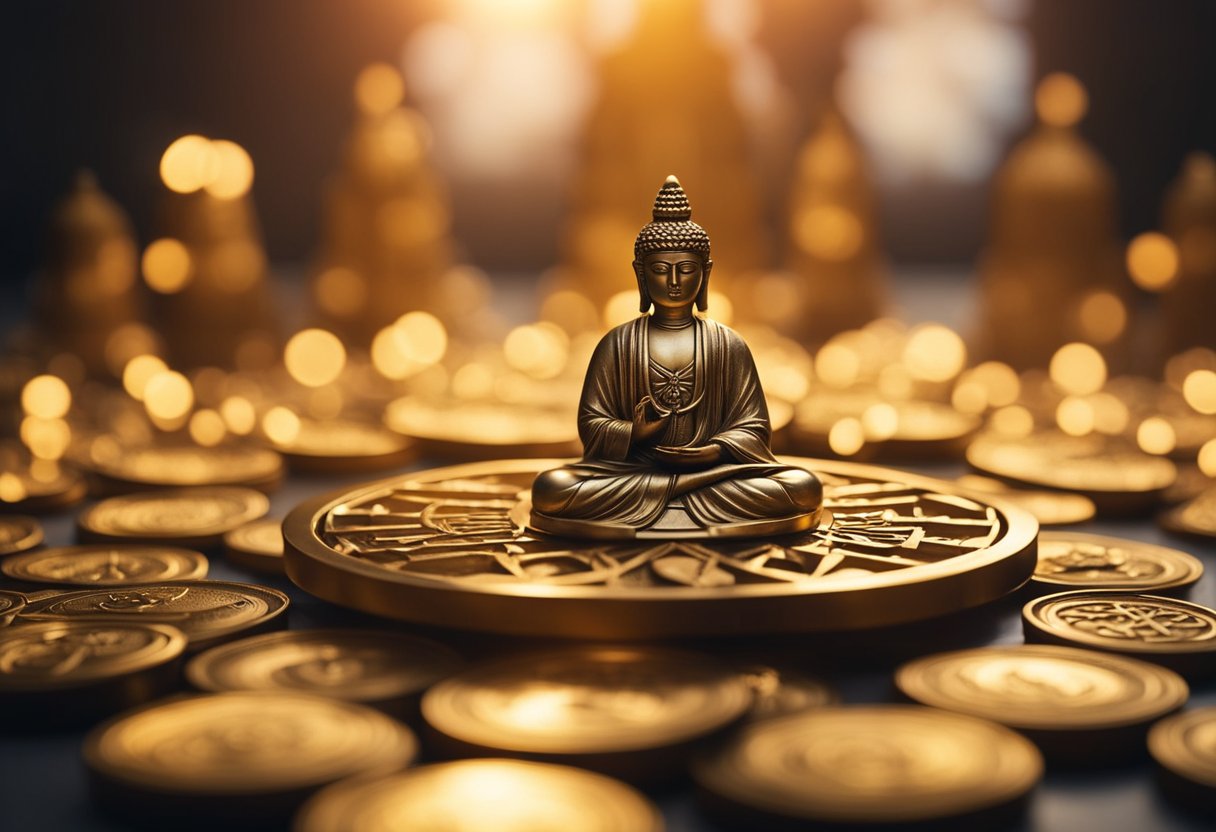
In the tapestries of our lives, blessings play a vital role in enhancing our well-being and supporting us through significant life changes.
Blessings and Individual Well-Being
Blessings are deeply intertwined with an individual’s sense of well-being. In many cultures, they are viewed as expressions of goodwill that have the power to bring about fertility, good luck, and protection against negative forces. For the recipient, a blessing can be a source of encouragement and comfort, often reinforcing a positive outlook and fostering a sense of gratitude and contentment. Personal blessings, whether they are whispered prayers or formal rituals, are believed to have the potential to influence our daily lives, shaping experiences with an overlay of reverence and meaning.
Life Transitions and The Use of Blessings
Throughout life’s pivotal moments—such as marriage or the birth of a child—blessings are commonly sought to commemorate and seek divine favour for these special circumstances. They serve as a rite of passage, marking the progression from one stage of life to another. In these transitions, blessings become more than words; they are intrinsic ceremonies that recognise and sanctify each new beginning. Whether it is a couple stepping into union or an individual embarking on a new chapter, the solicitation of blessings is a profound tradition that underscores the importance of these milestones in our personal journeys.
The Religious Practice of Blessing
In our examination of rituals across religions, we observe that blessings play a pivotal role, often serving as a bridge between the divine and the human worlds. Whether through prayer, sacramentals, or other ritual practices, blessings are invoked for protection, sanctification, and as expressions of divine benevolence.
Christian Practices and Sacramentals
In Christianity, particularly within Catholicism, blessings are considered a way to impart grace and God’s favour. Catholic rituals often involve blessing objects or persons with holy water or anointed oils, usually by a priest or minister. The Church understands these as sacramentals, which are distinct from the seven sacraments instituted by Christ but still hold significant religious importance. For example, the sign of the cross is a common benediction in both Catholic and Protestant traditions, and it is one of the simple yet profound ways of invoking God’s presence.
Objects such as rosaries, medals, and crosses are typically blessed to make them sacred and to inspire those who use them to a life of prayer and worship. Moreover, in the Old Testament of the Bible, which is vital to both Christian and Judaic religious beliefs, there are numerous instances of blessings offered by God to His people or by leaders such as Moses.
Blessings in Non-Christian Traditions
Moving beyond the Christian sphere, blessings take various forms in other religions, too. In Judaism, blessings are recited before performing certain actions or on various occasions, deeply rooted in the faith’s convictions and traditions. Hinduism celebrates blessings through numerous rituals and ceremonies, often seeking the favour of deities for prosperity and protection from evil.
In Islam, blessings are an integral part of daily prayers and life, where phrases like “Bismillah” (In the name of Allah) precede most actions. This not only seeks favour from Allah but also keeps the person mindful of the divine. The significance of blessings in Islam is also evident from how they mark important life events and accompany acts of charity and good deeds.
We witness across all these traditions that blessings, be they through spoken prayers or ritual practices, represent the human yearning for connection with the divine and the pursuit of a more sacred, sanctified life within one’s religious experience.
Blessings and Material Manifestations
In various traditions, blessings often carry a tangible aspect, manifesting through physical forms and sacred places that hold spiritual significance.
Sacred Objects and Amulets
We identify a multitude of objects believed to bestow blessings or protection across cultures. Amulets, for instance, serve as a material representation of blessings worn or placed in homes to deflect negative energy. These range from the hamsa hand in Jewish and Middle Eastern traditions, which is said to offer protection from the evil eye to Hindu talismanic scripts believed to secure blessings from deities. Similarly, animals may be honoured or depicted in these objects, symbolising traits like strength or wisdom that are culturally revered.
The Significance of Sacred Spaces
Our recognition of sacred spaces underscores their role as material manifestations of blessings. From houses of worship to natural sites, these spaces are considered imbued with divine presence or blessings. In the Christian tradition, churches and cathedrals are not merely places for collective worship but also sites where sacred relics are preserved, lending a blessed aura to the surroundings. Moreover, tools used in these spaces, such as the anointing oils or incense burners, hold the intent of invoking blessings upon the area and its congregants. Similarly, in Hinduism, temples house statues of various deities, with each space being a focal point for blessings sought by devotees.
Rituals, Ceremonies, and Festivities

In exploring the varied expressions of spirituality across the globe, we find that ceremonies and festivities are infused with blessings that hold profound meaning in different cultures. These gatherings are often rich with rituals and hymns – reflecting the diversity of belief systems and the universal human yearning for connection and celebration.
Ceremonies Around the World
Ceremonies play a pivotal role in the fabric of societal and religious life, fostering a sense of community and continuity. In Christian life, for example, rituals such as baptisms, weddings, and funerals are milestones that are marked by specific liturgies and often include the singing of hymns to express both joy and solemnity.
- Baptism: This ceremony marks the initiation of an individual into the Christian faith, often involving the use of water as a symbol of purification.
- Wedding: The exchange of vows and rings is accompanied by blessings, seeking divine favour and guidance in the couple’s life together.
- Funeral: A sombre observance that honours the deceased, typically featuring readings from scripture and communal prayers.
These rituals are a testament to the enduring nature of religious ceremonies in imparting values, strengthening faith, and nurturing communal ties.
Festive Occasions and Blessings
Festive occasions are times of great joy, where blessings are bestowed to invoke goodwill and fortune. Celebrations are imbued with symbolic significance and are often marked by vibrant religious rituals.
- Christmas: Celebrated with gusto, Christmas involves carol-singing and church services to observe the birth of Jesus Christ.
- Eid al-Fitr: A Muslim festival that marks the end of Ramadan, characterised by communal prayers and feasting.
In these celebrations, we see a fusion of faith with cultural traditions as people come together to give thanks and to share in the spirit of community – all integral aspects of living a fulfilled religious and cultural life.
Impact of Modernity on Blessing Practices
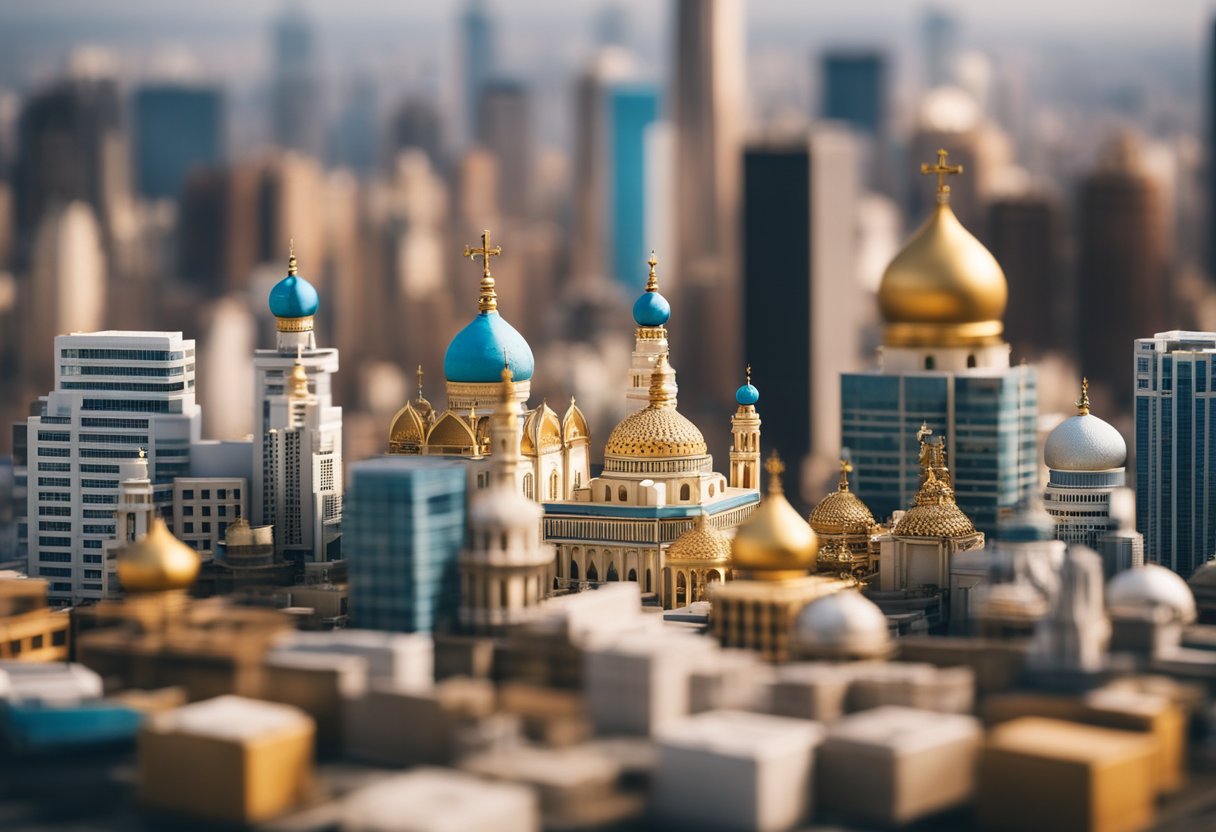
In an era of rapid social and cultural change, the practices surrounding blessings are not immune to the forces of modernity. Our exploration will consider how globalisation and secularism intersect with these timeless rituals.
Globalisation and Its Effects
Globalisation has connected the world in unprecedented ways, leading to an exchange of cultural practices, including those of blessings. Traditions once confined to specific regions are now shared and adapted across the global community, introducing new challenges and opportunities for preserving their religious significance. As different cultures interact, nontraditional methods of blessings may emerge, incorporating elements that resonate with a modern, interconnected audience.
Secularism and the Resilience of Blessings
Despite the rise of secularism and the shift towards non-religious use of traditional practices, blessings maintain an enduring place in many cultures. The move to a more secular society has not eliminated the human need for ritual and meaning; instead, it has often repurposed blessings into secular contexts. In modern life, these practices continue to provide solace, community connection, and a sense of continuity with the past, demonstrating the flexibility and resilience of blessings in adapting to new societal norms.
Blessings in Interpersonal Relationships
In the rich tapestry of world cultures, blessings often serve as the threads that connect individuals within a community, fostering love, friendship, and unity.
Expressions of Love and Friendship
Blessings in the form of positive words or rituals play a crucial role in expressing our affection and regard for others. Whether we’re offering good wishes for a friend’s upcoming journey or conveying congratulations on a life milestone, these blessings act as a powerful tool of communication. They reinforce the bonds of friendship and encapsulate our deep-seated wishes for the favour and well-being of those we hold dear.
Blessings in Community Cohesion
Blessings contribute significantly to community cohesion through community rituals and celebrations. A collective prayer for prosperity or a chant for peace in communal spaces reinforces gratitude and a shared sense of purpose. Our participation in such acts of blessing unifies us, building a strong foundation for community spirit and togetherness. It exemplifies the love and care that we nurture for not only our immediate friends and family but the wider community as well.
Blessings in Healthcare and Healing
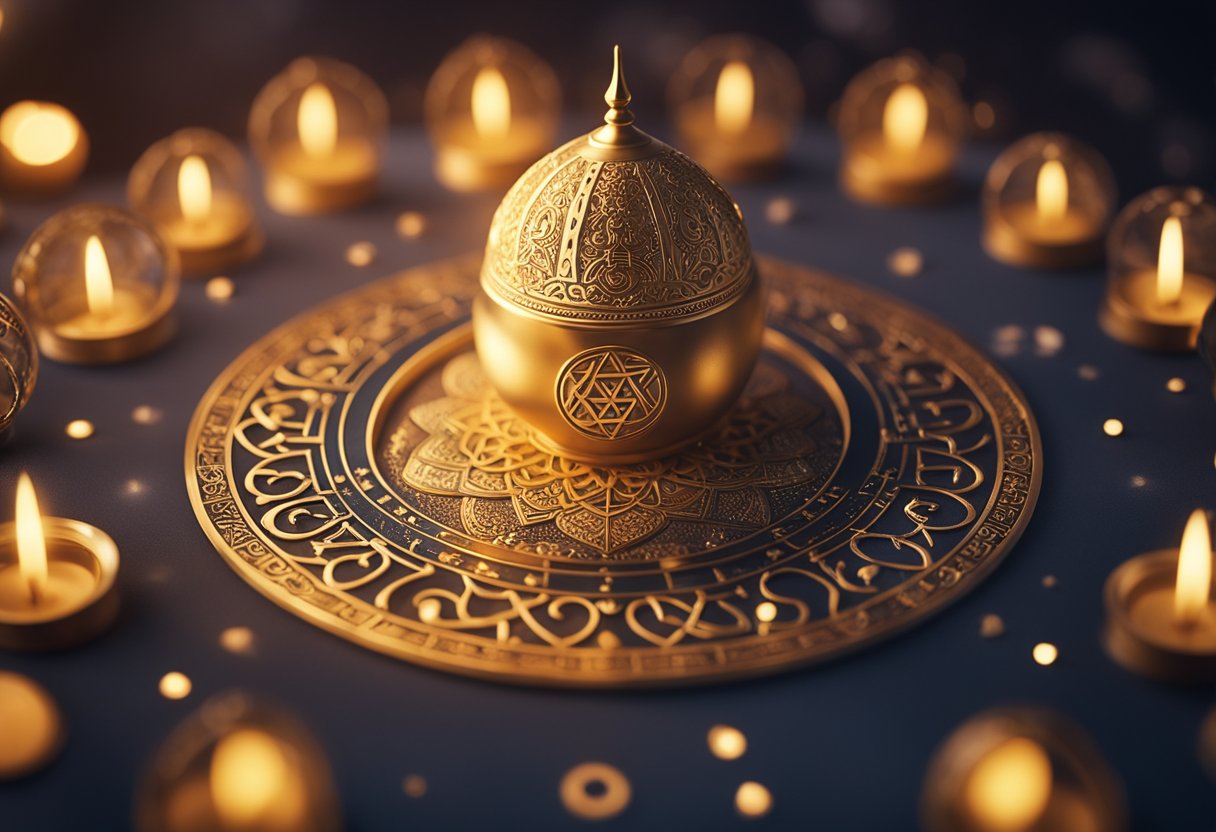
In healthcare, blessings encompass a range of practices that foster well-being among the sick and the aged. They intertwine with spiritual care provided by chaplains and align with some alternative medicine approaches to promote healing.
Spiritual Care and The Role of Chaplains
We recognise that spiritual care is integral to the healing process. Hospital chaplains are pivotal in this realm, offering spiritual and religious support to patients of diverse faiths. They conduct blessings, pray, and meditate with individuals, addressing their spiritual needs, which in turn can enhance their well-being.
- Engagement: Facilitate one-on-one interaction with patients.
- Meditation and Prayer: Offer meditation sessions and prayers specific to the patient’s beliefs.
- Rituals: Conduct rituals that are meaningful to the patients.
Chaplains bring a sense of peace and solace to the aged and sick, which is crucial for their overall health.
Alternative Medicine and Blessings
In alternative medicine, blessings and other spiritual practices often work alongside physical treatments. Infusing a blessing can transcend the mere act of wishing well; it acts as a conduit for promoting health and healing.
- Holistic Approach: Emphasise the treatment of the whole person, including spiritual health.
- Cultural Significance: Incorporate culturally significant blessings into therapy sessions.
- Outcome on Well-being: Potentially affect patients’ mental state and recovery rate.
These practices underscore the belief that health extends beyond physical symptoms, encompassing a harmonious balance of the mental, emotional, and spiritual state of a person.
Contemporary Debates and Challenges

The intersection of blessings with modern societal issues presents both an opportunity for common understanding and a battleground for differing ideologies. In this context, blessings have both unified and divided communities, calling into question the relevance and adaptation of religious practices in today’s diverse societies.
Religious Tolerance and the Role of Blessings
Tolerance is a cornerstone of modern religious freedom, yet its application can be particularly complex when intersecting with the concept of blessings. Given the myriad of beliefs, what blesses one community may not resonate with another, leading to debates on the universality of blessings. For instance, the public bestowal of a blessing by one religious figure might be welcomed by some as a gesture of goodwill, while others might see it as an encroachment upon their secular or different religious spaces. The challenge lies in harnessing the positive aspects of religious blessings—such as promoting well-being and unity—without infringing on the diverse principles of a multicultural society.
Blessings and Ethical Dilemmas
Amidst today’s ethical considerations, the role of blessings sparks reflection on moral conduct across varying contexts. Challenges arise when blessings, intended as sources of divine favour, are confronted with contemporary ethical scenarios. For example, if a business leader seeks a religious blessing to thrive, and it does, ethical questions about competition and fairness emerge. Additionally, religious disputes can surface when blessings are used as metaphors in political rhetoric, potentially stoking tensions rather than fostering the intended harmony. The ethical lens through which blessings are viewed and conveyed can either bridge divides or deepen them, pressing religious communities to contemplate the ramifications of invoking blessings in a complex moral landscape.
Frequently Asked Questions
In this section, we explore some of the most commonly asked questions about the role and interpretation of blessings in different religions and cultural practices worldwide.
What constitutes a blessing in various world faiths?
In Christianity, a blessing is often seen as a divine favour or protection, while in Islam, it is considered a manifestation of Allah’s grace. In the practice of Buddhism, blessings serve as a transfer of merit and are deeply intertwined with the acts of prayer and meditation.
How do blessings manifest in different cultural practices?
Blessings manifest through various cultural practices, often during significant life events. For instance, some cultures integrate blessings into wedding ceremonies, where they serve as a means to wish happiness and prosperity upon the couple, demonstrating a common desire to invoke positive outcomes through ritual acts.
What significance do blessings hold in spiritual contexts?
In spiritual contexts, blessings are believed to provide protection, promote spiritual growth, and bring the guidance of a higher power into the lives of individuals or communities, as seen within many religious rituals and ceremonies.
In what ways are blessings communicated and conveyed across societies?
Blessings are communicated verbally, such as by saying prayers or chants, and non-verbally, through the laying of hands or anointing with oil. They are conveyed in both formal religious settings and casual, interpersonal interactions, highlighting the versatile nature across different societies.
What are the perceived effects of blessings in religious traditions?
In religious traditions, blessings are perceived to have profound effects, ranging from the healing of the sick to providing divine guidance or bestowing good fortune, capturing the deeply held belief in the tangible impact of spiritual forces.
How do interpretations of blessings differ among world cultures?
Interpretations of blessings differ significantly among world cultures, shaped by varying theological beliefs and cultural contexts. For example, some view blessings as rewards for moral behaviour, while others see them as unconditional gifts from the divine or ancestral spirits.






